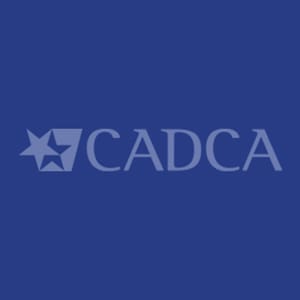Changing individual habits has never been easy, let alone changing the habits of an entire community, but that’s exactly what volunteers are doing through safe disposal initiatives.
No longer are residents simply flushing away old medication or carelessly throwing it away with the rest of their garbage. Thanks to increased efforts to educate people about medicine abuse, members of our community are now more mindful about how they use, store and even dispose of their medication.
In Collier County, Florida, residents have safely disposed of unwanted household medication since 1993 through our pharmaceutical take-back program known as Operation Medicine Cabinet. The program has grown over the years and now includes 11 permanent drop boxes in our community. Locally, more than 8,700 pounds of prescription pills were collected for safe disposal in 2014 alone. (Is your coalition reducing medicine abuse by operating a permanent drop box? Don’t forget to list them on https://rxdrugdropbox.org/.)
We are thrilled that so many people are resisting the temptation to flush their medication down the toilet or discard it along with their trash. As we learn more about the risks of unsecured medication and the impact of pharmaceuticals on our water supply, it’s easy to see why more people are participating.
In an effort to continue working on safe disposal of medication, Drug Free Collier is excited to launch a new project with support from CADCA and Mallinckrodt Pharmaceuticals. Drug disposal, or deactivation, pouches are now being used as a safe alternative for residents looking to rid their homes of unwanted medication. Each pouch efficiently neutralizes up to 90 pills; 12 ounces of liquid or 12 patches. These packets are biodegradable and can be disposed with normal trash.
It provides residents with the convenience of home disposal and is ideal for people who may not be able to get to our permanent boxes. It’s the next step in our fight against medicine abuse.
Safe disposal programs like these are vital because they ensure that prescription drugs do not fall into the wrong hands. It’s a simple, yet powerful way for every resident to take an active role in preventing tragedies in their community. We are going to be even more impactful because we are working with two other coalitions in Florida on this project.
Coalitions are the perfect vehicle to deliver medicine safety messages to young people in the community. To help in that effort, CADCA and several of its coalitions assisted in revising content for the community section of the OTC Medicine Safety program’s curriculum, developed by Scholastic and the American Association of Poison Control Centers in partnership with McNeil Consumer Healthcare. The curriculum, aimed at 5th and 6th graders, raises awareness about the safe use of over-the-counter OTC medicines and provides resources to better equip educators, school nurses, parents and other community leaders with knowledge about responsible OTC medicine use, storage and disposal.
But keeping our kids safe isn’t the only benefit. David Herring, a groundwater specialist with the Florida Rural Water Association explains that septic and wastewater systems are not able to treat and remove pharmaceuticals. Any drug that makes its way through these systems can greatly increase the concentrations in the environment when dumped down the drain at full strength, he told residents at the DEA’s National Take Back Day Sept. 26th. In doing so, these drugs are being released back into the surface waters, which seep down to the groundwater and into our drinking water, Herring added. Our environment is also protected when we safely dispose of our medication.
During National Medicine Abuse Awareness Month, it’s important to remember that safe disposal can help prevent accidental poisoning, overdose and abuse. Medicine abuse is preventable and we can all be part of the solution through safe use, storage and disposal.
Melanie Black is the Executive Director of Drug Free Collier, a CADCA member.
(At CADCA’s Drug Free Kids Campaign dinner, CADCA honored Mark Trudeau, President and Chief Executive Officer of Mallinckrodt Pharmaceuticals, as its Humanitarian of the Year for his personal commitment to help prevent teen drug use, support of CADCA’s mission and Mallinckrodt’s collaborative approach to addressing our nation’s opioid addiction crisis.)



